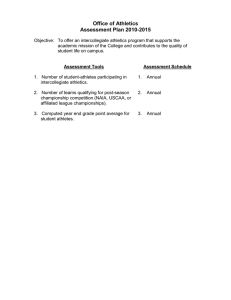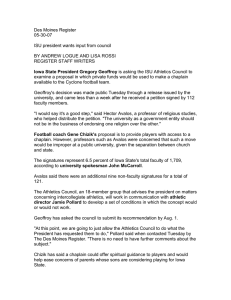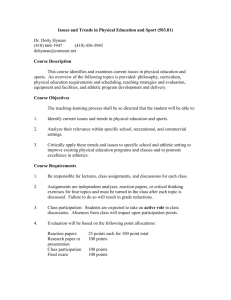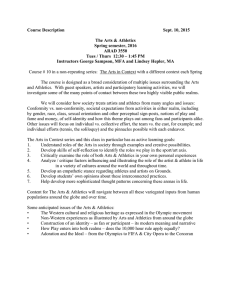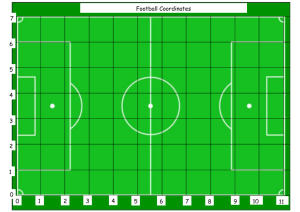Inside Higher Ed, DC 06-28-07 When Prayer Reaches the Locker Room
advertisement
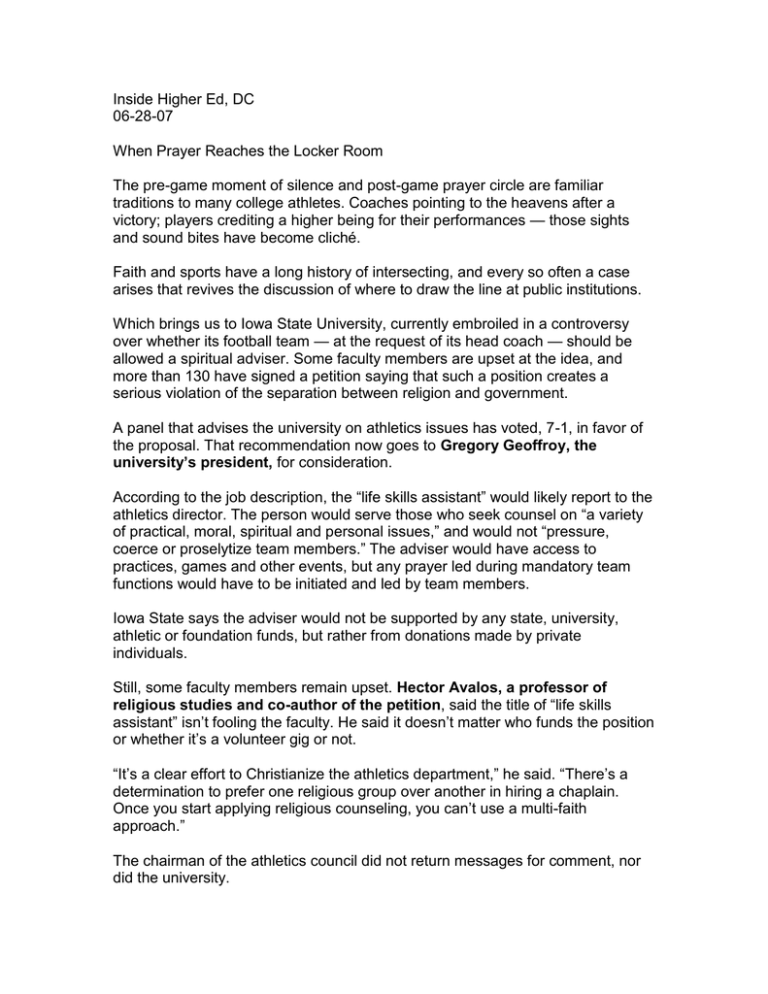
Inside Higher Ed, DC 06-28-07 When Prayer Reaches the Locker Room The pre-game moment of silence and post-game prayer circle are familiar traditions to many college athletes. Coaches pointing to the heavens after a victory; players crediting a higher being for their performances — those sights and sound bites have become cliché. Faith and sports have a long history of intersecting, and every so often a case arises that revives the discussion of where to draw the line at public institutions. Which brings us to Iowa State University, currently embroiled in a controversy over whether its football team — at the request of its head coach — should be allowed a spiritual adviser. Some faculty members are upset at the idea, and more than 130 have signed a petition saying that such a position creates a serious violation of the separation between religion and government. A panel that advises the university on athletics issues has voted, 7-1, in favor of the proposal. That recommendation now goes to Gregory Geoffroy, the university’s president, for consideration. According to the job description, the “life skills assistant” would likely report to the athletics director. The person would serve those who seek counsel on “a variety of practical, moral, spiritual and personal issues,” and would not “pressure, coerce or proselytize team members.” The adviser would have access to practices, games and other events, but any prayer led during mandatory team functions would have to be initiated and led by team members. Iowa State says the adviser would not be supported by any state, university, athletic or foundation funds, but rather from donations made by private individuals. Still, some faculty members remain upset. Hector Avalos, a professor of religious studies and co-author of the petition, said the title of “life skills assistant” isn’t fooling the faculty. He said it doesn’t matter who funds the position or whether it’s a volunteer gig or not. “It’s a clear effort to Christianize the athletics department,” he said. “There’s a determination to prefer one religious group over another in hiring a chaplain. Once you start applying religious counseling, you can’t use a multi-faith approach.” The chairman of the athletics council did not return messages for comment, nor did the university. In an e-mail response to the petition (provided by Avalos), Jamie Pollard, athletics director at Iowa State, defended the position. “Much like we have offered our student-athletes access to drug and alcohol counselors, sports psychologists, nutritionists, hypnotists, physical therapists, learning specialists, chiropractors, physicians, etc., we are now going to also provide access to a spiritual advisor.” Avalos said that as college teams become more diverse, the issue of bringing religion into the mix at public institutions will become all the more problematic. Added Peter Roby, director of the Center for the Study of Sport in Society at Northeastern University, where he was just named athletics director: “In my opinion it is a dangerous precedent because it can lead to some athletes feeling isolated and discriminated against ... I would let the athletes know what religious and spiritual resources are available on campus or in the community and let them access them as they see fit.” At New Mexico State University, a confidential settlement has been reached in a case involving former football players who claimed they were discriminated against because they are Muslims. The suit alleges the players were dismissed because of their religious beliefs, and that while on the team they were asked to recite the Lord’s Prayer during team functions. (The settlement stipulated that the university denies wrongdoing or bias. As a result of the suit, the prayer has been replaced by a moment of silence.) But coaches often say that prayers are directed at the safety of the players, and are not religiously based. Reports have documented coaches at the some universities taking athletes to churches before the football season in an effort to build team unity. The coaches say the trips are never mandatory, and that they cannot remember players complaining. Pollard, in the letter to Iowa State faculty, indicated that for more than a decade, a local pastor has traveled with its football team and attended home games as his schedule permitted. Avalos said the “business-as-usual” defense doesn’t fly. “At a public institution, it’s always a Constitutionally risky thing to do.” — Elia Powers
